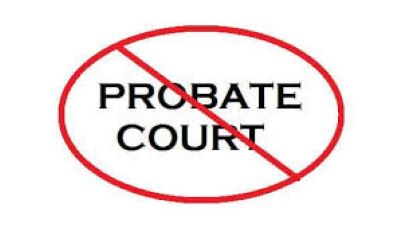The topics of Probate and Estate Taxes cause a great deal of confusion. Somehow, it is generally thought, if you avoid one you avoid the other. This is not true. Probate and Estate Taxes cover two different distinct areas.
Probate generally refers to those assets that you die with in your name alone. If assets are in your name alone, somehow, they must get legally transferred into the name or names of the beneficiary/ies you want to have them. If you have a Will, those assets are transferred by the terms of your Will through the Probate process. If you have no Will, they are transferred by a State formula. Obviously, it is better to have a Will than not have one.
The bad news is that even if you manage to avoid Probate by having all assets out of your name alone, you won’t necessarily avoid Estate Taxes. Anything you have (or have had) the “use and enjoyment” of such as a bank account, house or CD, even if it is out of your name alone, is still considered part of your estate for Estate Tax purposes. The good news is you have to have a fair amount of assets ($1,000,000 in Massachusetts in 2019 and beyond, federal level higher) before Estate Taxes effect you. If you and or your spouse have assets above this total (including real estate, IRA’s and funds you’ve retained till death or given away during life), you may want to consider doing some estate planning with a professional to lessen or eliminate Estate Taxes you may eventually owe.
Roger Levine is a Massachusetts Estate Planning, Probate and Elder Law Attorney with offices in Canton & Brockton.
